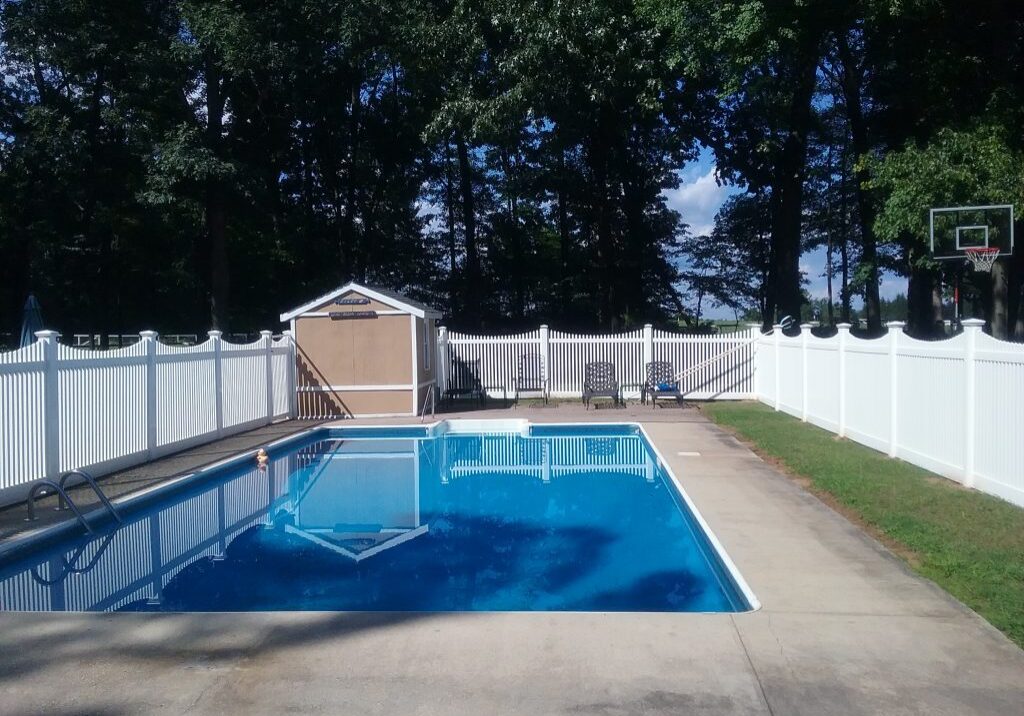All Categories
Featured
When you choose to mount a fencing around your domestic property, it's necessary to comprehend the license requirements details to your area. Right here's a detailed look at the licenses you may require for fencing installation.
Why Do You Need an Authorization for Fencing Installation? A fencing is even more than simply a barrier between residential or commercial properties-- it can impact safety, residential or commercial property worth, visual appeals, and also ecological problems. Local federal governments require permits to make certain that fences satisfy particular standards and do not cause troubles for utilities, next-door neighbors, or the community overall. Authorizations likewise make certain that the setup follows zoning laws, constructing codes, and security guidelines.
![]()
Types of Authorizations You Might Need. Building License. A building permit is among one of the most typical permits needed for fencing setup. This license guarantees that the fence meets regional building ordinance. If you're developing a fence over a particular height (typically over 6 feet), you'll likely require a building license. The neighborhood building department will usually examine the website and evaluation plans to ensure the framework is stable and does not block public rooms or create risks.
Zoning License. A zoning permit guarantees your fence conforms with trouble, location, and elevation laws. Fencings may require to be set back a certain distance from pathways, roadways, or residential or commercial property lines to prevent blockage or disturbance with energies.
HOA Authorization. If your residential property becomes part of a house owners association (HOA), you may require to look for approval prior to mounting a fence. HOAs typically have standards that govern the aesthetics and structure of fencings to ensure they are in harmony with the area. You might require to submit your strategies for approval, and the HOA might restrict fencing material, elevation, or style.
Specialty Permits. In some locations, there may be additional permits required for particular scenarios. As an example, if your fence is near a secured ecological area or situated in a flood zone, you might need to get specialty permits associated with ecological effect. Similarly, if the fence remains in a location with underground utilities, you might require to acquire clearance to stay clear of damaging pipes or wires.
![]()
Easement or Utility Company Permission. Before installing a fencing, it's essential to check whether the property includes an easement, such as an utility easement, which could influence where you can place your fence. Easements are locations of land assigned for public or private utilities, and you might need approval from the utility firm or various other authority to build within this area.
Just How to Figure Out What Allows You Required. To ensure that you're complying with all the necessary laws, below's just how you can establish the certain authorizations required for your fencing installment:
![]()
Check Out Your Regional Federal Government Office: The initial step is to examine with your neighborhood structure or zoning division. Many cities and regions have guidelines offered online that define what kinds of permits are needed for fencing setup. If not, checking out the workplace or calling personally can aid clarify the process. Examine Your City's Website: Many communities offer details regarding fence installations and the authorizations needed with their official internet sites. Some web sites even permit you to submit applications online. Seek Advice From a Fencing Installation Specialist: If you're unsure regarding regional guidelines, an expert fence service provider can aid. They know with the allowing procedure and can assist you through the steps. The Repercussions of Not Getting a License. Stopping working to safeguard the needed permits prior to setting up a fence can result in considerable effects. You might be fined or called for to eliminate the fencing entirely. Additionally, if you decide to sell your property in the future, the absence of a permit might prevent prospective purchasers, as they may see it as a sign that the home is not compliant with local laws. Making sure that you have the appropriate authorizations will certainly save you time, money, and frustrations in the lengthy run.
Verdict. Setting up a fencing around your house can include both security and visual appeal, yet it's vital to ensure you're complying with the legal steps in the procedure. Investigating the details permit needs for your area, consisting of building licenses, zoning regulations, HOA approval, and utility permissions, will aid guarantee your fence installment goes smoothly. Putting in the time to understand these needs now can save you from expensive blunders and possible legal issues down the line.
Why Do You Need an Authorization for Fencing Installation? A fencing is even more than simply a barrier between residential or commercial properties-- it can impact safety, residential or commercial property worth, visual appeals, and also ecological problems. Local federal governments require permits to make certain that fences satisfy particular standards and do not cause troubles for utilities, next-door neighbors, or the community overall. Authorizations likewise make certain that the setup follows zoning laws, constructing codes, and security guidelines.

Types of Authorizations You Might Need. Building License. A building permit is among one of the most typical permits needed for fencing setup. This license guarantees that the fence meets regional building ordinance. If you're developing a fence over a particular height (typically over 6 feet), you'll likely require a building license. The neighborhood building department will usually examine the website and evaluation plans to ensure the framework is stable and does not block public rooms or create risks.
Zoning License. A zoning permit guarantees your fence conforms with trouble, location, and elevation laws. Fencings may require to be set back a certain distance from pathways, roadways, or residential or commercial property lines to prevent blockage or disturbance with energies.
HOA Authorization. If your residential property becomes part of a house owners association (HOA), you may require to look for approval prior to mounting a fence. HOAs typically have standards that govern the aesthetics and structure of fencings to ensure they are in harmony with the area. You might require to submit your strategies for approval, and the HOA might restrict fencing material, elevation, or style.
Specialty Permits. In some locations, there may be additional permits required for particular scenarios. As an example, if your fence is near a secured ecological area or situated in a flood zone, you might need to get specialty permits associated with ecological effect. Similarly, if the fence remains in a location with underground utilities, you might require to acquire clearance to stay clear of damaging pipes or wires.

Easement or Utility Company Permission. Before installing a fencing, it's essential to check whether the property includes an easement, such as an utility easement, which could influence where you can place your fence. Easements are locations of land assigned for public or private utilities, and you might need approval from the utility firm or various other authority to build within this area.
Just How to Figure Out What Allows You Required. To ensure that you're complying with all the necessary laws, below's just how you can establish the certain authorizations required for your fencing installment:

Check Out Your Regional Federal Government Office: The initial step is to examine with your neighborhood structure or zoning division. Many cities and regions have guidelines offered online that define what kinds of permits are needed for fencing setup. If not, checking out the workplace or calling personally can aid clarify the process. Examine Your City's Website: Many communities offer details regarding fence installations and the authorizations needed with their official internet sites. Some web sites even permit you to submit applications online. Seek Advice From a Fencing Installation Specialist: If you're unsure regarding regional guidelines, an expert fence service provider can aid. They know with the allowing procedure and can assist you through the steps. The Repercussions of Not Getting a License. Stopping working to safeguard the needed permits prior to setting up a fence can result in considerable effects. You might be fined or called for to eliminate the fencing entirely. Additionally, if you decide to sell your property in the future, the absence of a permit might prevent prospective purchasers, as they may see it as a sign that the home is not compliant with local laws. Making sure that you have the appropriate authorizations will certainly save you time, money, and frustrations in the lengthy run.
Verdict. Setting up a fencing around your house can include both security and visual appeal, yet it's vital to ensure you're complying with the legal steps in the procedure. Investigating the details permit needs for your area, consisting of building licenses, zoning regulations, HOA approval, and utility permissions, will aid guarantee your fence installment goes smoothly. Putting in the time to understand these needs now can save you from expensive blunders and possible legal issues down the line.
Latest Posts
What Are the Benefits of Selecting a Custom Fence Design?
Published Dec 21, 24
0 min read
What Allows Are Required for Mounting a Surround My Area?
Published Dec 21, 24
0 min read
Expert Gutter Installation and Maintenance in HD
Published Dec 21, 24
1 min read